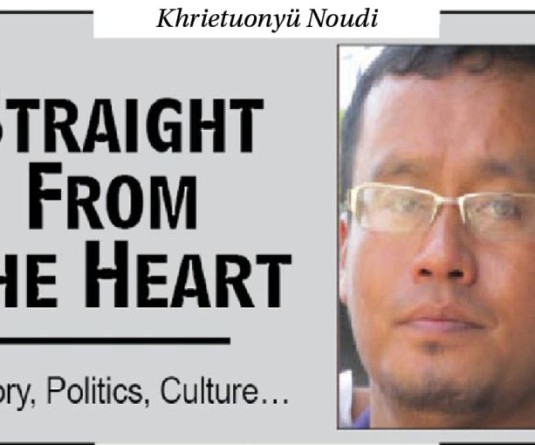
Y Mhonchumo Humtsoe
Chümoukedima
Not long ago, I was invited to a school as a guest teacher, tasked with delivering a speech to students in grades 8, 9, and 10. Initially, I was hesitant to accept the invitation. Having no prior teaching experience, I felt like the wrong person in the right place at the wrong time. Standing before a room full of bright, young minds seemed daunting, and I questioned whether I was the right fit for such a responsibility.
However, looking back, I am grateful I accepted the opportunity. Had I not stepped out of my comfort zone that day, I wouldn’t have this meaningful experience to share. I owe sincere thanks to the school for trusting me with this role and allowing me to connect with their students.
The day was bright and sunny, and as I began my speech, I felt a mix of excitement and nervousness. My talk lasted nearly an hour, but it was during the Q&A session that something truly remarkable happened. A sharp, confident student stood up and asked a question that left me momentarily stunned: “Are all human beings created with equal brains?”
This question caught me off guard. I hadn’t expected such a profound inquiry from high school students, nor had I ever encountered such a thought-provoking question in my life. For a moment, I was at a loss for words, unsure how to respond in a way that would satisfy both the student and the rest of the audience.
To buy myself some time, I turned the question back to the students, asking them to reflect on their own beliefs. A lively discussion ensued. Some students argued passionately that all humans are born with equal brains, while others countered that if this were true, why do some students excel academically while others struggle, despite putting in equal effort? The debate was both fascinating and enlightening, and it allowed me to guide the conversation toward a deeper understanding.
After some back-and-forth, I offered a logical conclusion, using an example to illustrate my point. I explained that God, our creator, is impartial. He created all humans with equal potential, regardless of gender or background. For instance, every child is conceived and nurtured in the womb for nine months, and at birth, no baby is inherently superior to another. A new born knows nothing—they cannot speak, walk, or understand the world around them. It is through upbringing, learning, and experience that they gradually develop into unique individuals.
I shared an example from our own community: a child born into the Lotha tribe will naturally grow up speaking the Lotha dialect and adopting Lotha traditions. Similarly, if someone from mainland India is adopted by the Lotha community, they too will learn to speak the dialect and embrace the culture, even if they look different. This, I explained, is proof that our potential is shaped by our environment and experiences, not by any inherent inequality in our brains.
I also emphasized that no child is born fully developed. Human growth is a gradual process, shaped by learning, nurturing, and the circumstances of one’s upbringing. While we may start with equal potential, our paths diverge based on how we are raised, the opportunities we are given, and the effort we put into learning and growing.
In the end, I concluded that every person is important and capable of achieving greatness. The differences in our abilities and achievements are not a reflection of unequal brains but rather the result of our unique journeys. God has endowed us all with equal potential, but it is up to us—and the world around us—to nurture and unlock that potential.
The experience taught me that sometimes, the most profound lessons come from the questions we least expect. That day, I didn’t just teach the students—I learned from them, and together, we explored the beautiful complexity of human potential.




